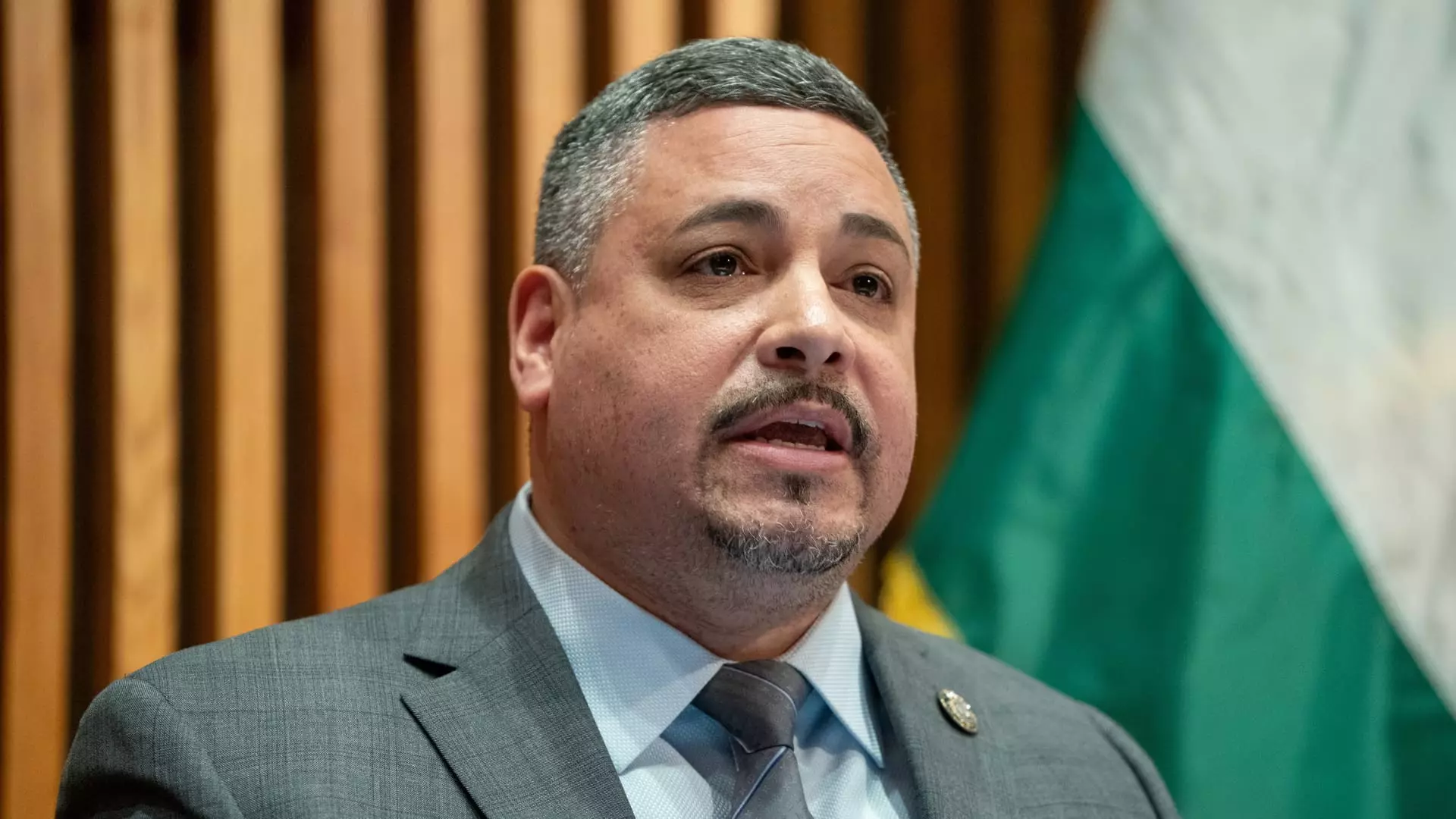On Thursday, the New York Police Department (NYPD), which holds the distinction of being the largest police force in the United States, witnessed a significant shift in leadership with the resignation of Commissioner Edward Caban. This decision came amid a swirling backdrop of federal investigations focusing on the department’s nightclub enforcement practices. Caban, who had only assumed the role in July 2023, made history as the first Latino commissioner in the NYPD’s nearly two-century history. His departure raises questions about the challenges facing law enforcement leadership in today’s complex social landscape.
Caban’s resignation, announced through a memo acquired by News 4, reflects a profound concern for the operational integrity of the NYPD. “My complete focus must be on the NYPD – the Department I profoundly honor and have dedicated my career to serving,” he stated, indicating that external distractions had become a formidable barrier to fulfilling his duties. This need to prioritize the department’s well-being over personal ambition underscores the weight of leadership and the selflessness often demanded of public servants.
The federal inquiry, which implicated not only Caban but also his twin brother, James Caban—who owns a nightclub security business—centers on allegations of corruption involving special treatment for certain nightclubs. Reports suggest that federal authorities are exploring whether James Caban financially benefited from his relationship with the NYPD and whether officers engaged in unethical practices, such as selectively enforcing regulations based on business affiliations.
Caban’s resignation not only means that Mayor Eric Adams must find a third police commissioner in under three years but also highlights a possible unsettling pattern of mismanagement within the department. The ongoing investigations by the U.S. Attorney’s Office for the Southern District of New York and the Internal Revenue Service do not merely pose a crisis for Caban but extend to the overall credibility and transparency of the NYPD.
Adams, while accepting Caban’s resignation, emphasized the importance of focusing on the city’s operations despite the turmoil rattling his administration. He appointed Tom Donlon as the interim commissioner, hoping to provide stability amidst uncertainty. The challenges ahead for Donlon and the NYPD are daunting, with the potential for systemic reform needed to restore public trust.
Caban’s resignation also serves as a catalyst for discussing the broader context surrounding police leadership in America. The pressure on law enforcement agencies has intensified, especially regarding transparency and accountability. Communities expect their police forces to operate with integrity and to be above reproach, demanding ethical behavior not only from officers on the streets but also from those at the helm.
Caban’s scenario reflects a more extensive systemic issue. Police departments across the nation are grappling with public scrutiny and calls for reform in a climate where trust in law enforcement is waning. Leaders who are ensnared in controversies not only jeopardize their careers but also the effectiveness of their departments. This dynamic creates an imperative for police leaders to maintain ethical standards and for systems to be put in place that ensure accountability and oversight.
As Caban’s attorneys contended in a joint statement, his tenure as a public servant has been characterized by dedication to the safety of New Yorkers and respect for the officers under his command. Yet, his resignation complicates this legacy. In an environment where integrity is paramount, even a hint of impropriety can cast a long shadow over public servants.
While the investigation is ongoing and no charges have been filed, the repercussions of these allegations could resonate beyond Caban’s personal career. They may impact how future police leaders are perceived and could alter recruitment and training practices within law enforcement. The NYPD, and by extension, other police departments, must evolve to address these crises and cultivate leaders who embody the principles of justice, integrity, and community trust.
The future of the NYPD and the legacy of Edward Caban will likely be shaped by how well the department can navigate this tumultuous period. As it stands, the NYPD faces a crucial moment to reestablish itself as a beacon of integrity and justice within a city demanding accountability and ethical governance. Whether through meaningful reforms or a commitment to transparency, the path forward will be pivotal in shaping both public perception and the efficacy of police operations in New York City.


Leave a Reply